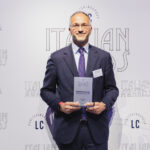Prof. Salvatore Sansalone of the Università Tor Vergata of Rome, talks about the achievements of scientific research on the field
There are several clinical conditions for which a man may need a surgical reconstruction of the genital organ. Among these, the most common are partial or total trauma amputation or surgical excision for the treatment of benign or malignant lesions.
Modern reconstructive surgical techniques, more and more advanced and close to the clinical and psychological needs of patients, allow today to recover an absolutely satisfying sexual and urinary function. To illustrate the latest frontiers of this surgery is Prof. Salvatore Sansalone, researcher of the Department of Experimental and Surgical Medicine of the Università Tor Vergata of Rome.
Prof. Sansalone, in the history of medicine, how many penis transplantations have been performed in the world?
“Until today only three! The first, in China in 2006, and was unfortunately negative, not because of an error in the surgical technique but rather due to problems of a psychological nature of the patient. The second was instead successfully performed in South Africa in 2014 on a 21-year-old boy who, thanks to the intervention, recovered the perfect functionality of the organ, both from the urological and sexual point of view.
Ten months after the operation, the transplanted patient became a father! The third and last intervention was performed on a 64-year-old man, in the USA, by the Massachusetts General Hospital team, assisted by Dr. Curtis L. Cetrulo. It is therefore a decisive turning point for reconstructive surgery of male external genitalia, an intervention which will benefit men who lose their penis from cancer, genetic abnormalities or surgical side effects and traumas “.
How important is a penis transplant?
“Very very much! The loss of the genital organs can be truly devastating for a man’s identity and his sense of virility. The goal of the operation, therefore, is not only to reconstruct the genital organ, but above all to restore the patient’s social and sexual identity as a result of a traumatic event. Today, thanks to the immense progress made by reconstructive surgery, it is possible to meet the expectations of men who want to return to a normal life! “.
To evaluate the achievements in this field, you have organized a scientific conference, which will see the participation of numerous luminaries of the subject.
“Absolutely yes. To analyze these first clinical experiences reported in the scientific literature and especially to assess the feasibility of such an intervention in Italy, we organized a meeting, of which I am the scientific manager, to be held at the “Policlinico Tor Vergata” on 13 and 14 April, titled “Tissue Engineering and Penile Transplant”. Honorary guests include Cardinal Emilio Menichelli, National Ecclesiastical Assistant Association of Italian Catholic Doctors (A.M.C.I.), F.M. Boscia, President A.M.C.I., Prof. V. Mirone, Head of the Resource and Communication Office of the Italian Society of Urology (SIU) and dr. Curtis L. Cetrulo, of the Harvard School of Medicine in Boston, who performed the first penis reconstruction in the USA. An important opportunity for discussion that will bring together important professionals from all over the world “.
She heads the Centre for Reconstructive Genital and Urethral Surgery in Rome, a centre of excellence at the top of Europe. What are its strengths?
“The Centre represents an important high specialized point of reference, recognized nationally and internationally for the very high clinical standards guaranteed in the diagnosis and therapeutic treatment of urethral and male genital tract diseases (urethral strictures, lichen sclerosus, failed hypospadias, urinary incontinence, Peyronie’s disease, congenital curved penis, erectile dysfunction, penile prosthesis implant). The Centre has achieved a level of excellence that distinguishes itself within the international scene, both for its surgical and scientific activities “.
More info (www.stenosiuretrale.it) (salvatore.sansalone@yahoo.it)
By Roberta Imbimbo























































